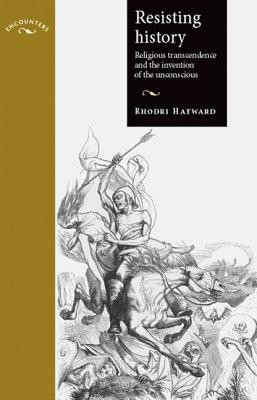
- We will send in 10–14 business days.
- Author: Rhodri Hayward
- Publisher: Manchester University Press
- ISBN-10: 0719095379
- ISBN-13: 9780719095375
- Format: 14 x 21.6 x 0.9 cm, softcover
- Language: English
- SAVE -10% with code: EXTRA
Reviews
Description
How can historians make sense of visions, hauntings and demonic possession? Do miraculous events have any place in a world governed by cause and effect? In Resisting history, Rhodri Hayward examines the cumulative attempts of theologians, historians and psychologists to create a consistent and rational narrative capable of containing the inexplicable. This lucid and provocative account argues that the psychological theories we routinely use to make sense of supernatural experience were born out of struggles between popular mystics and conservative authorities. Hayward's lively analysis of the Victorian disciplines of Christology, psychology and psychical research reveals how our modern concept of the subconscious was developed as a tool for policing religious inspiration. He concludes his argument with a vivid study of the Welsh Revival of 1904-5, in which the attempt of thousands of converts to cast off their everyday identity was diffused and defeated using the language of the
new psychology. By revealing the politics inherent in such language, Hayward raises questions about its deployment in the work of today's historians. Written in a clear and accessible style, Resisting history provides a fresh and entertaining perspective for anyone interested in questioning the concepts that underlie historical writing and psychological thought today.
EXTRA 10 % discount with code: EXTRA
The promotion ends in 8d.05:37:10
The discount code is valid when purchasing from 10 €. Discounts do not stack.
- Author: Rhodri Hayward
- Publisher: Manchester University Press
- ISBN-10: 0719095379
- ISBN-13: 9780719095375
- Format: 14 x 21.6 x 0.9 cm, softcover
- Language: English English
How can historians make sense of visions, hauntings and demonic possession? Do miraculous events have any place in a world governed by cause and effect? In Resisting history, Rhodri Hayward examines the cumulative attempts of theologians, historians and psychologists to create a consistent and rational narrative capable of containing the inexplicable. This lucid and provocative account argues that the psychological theories we routinely use to make sense of supernatural experience were born out of struggles between popular mystics and conservative authorities. Hayward's lively analysis of the Victorian disciplines of Christology, psychology and psychical research reveals how our modern concept of the subconscious was developed as a tool for policing religious inspiration. He concludes his argument with a vivid study of the Welsh Revival of 1904-5, in which the attempt of thousands of converts to cast off their everyday identity was diffused and defeated using the language of the
new psychology. By revealing the politics inherent in such language, Hayward raises questions about its deployment in the work of today's historians. Written in a clear and accessible style, Resisting history provides a fresh and entertaining perspective for anyone interested in questioning the concepts that underlie historical writing and psychological thought today.


Reviews